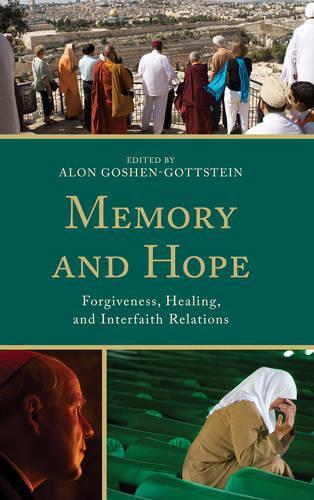
Memory and Hope: Forgiveness, Healing, and Interfaith Relations
(Hardback)
Publishing Details
Memory and Hope: Forgiveness, Healing, and Interfaith Relations
By (Author) Alon Goshen-Gottstein
Contributions by Rahuldeep Singh Gill
Contributions by Alon Goshen-Gottstein
Contributions by Maria Reis Habito
Contributions by Flora A. Keshgegian
Contributions by Anantanand Rambachan
Contributions by Meir Sendor
Contributions by Muhammad Suheyl Umar
Contributions by Michael von Brck
Bloomsbury Publishing PLC
Lexington Books
8th October 2015
United States
Classifications
Professional and Scholarly
Non Fiction
Comparative religion
Religious issues and debates
History of religion
201.5
Physical Properties
Hardback
174
Width 159mm, Height 237mm, Spine 18mm
399g
Description
This book tackles the core problem of how painful historical memories between diverse religious communities continue to impact, even poison, present day relations. Its operative notion is that of healing of memory, a notion developed by John Paul II. The different papers explore how the painful memories of yesteryear can be healed in the framework of contemporary efforts. In so doing, they seek to address some of the root causes that continue to impact present day relations, but which rarely if ever get addressed in other contexts. Strategies from six different faith traditions are brought together in what is, in some ways, a cross-religious brainstorming session that seeks to identify the kinds of tools that would allow us to improve present day relations. At the end of the conceptual pole of this project is the notion of hope. If memory informs our past, hope sets the horizons for our future. How does the healing of memory open new horizons for the future And what is the notion of hope in each of our traditions, so that it might be receptive to opening up to a common vision of good for all Between memory and hope, the project seeks to offer a vision of healing and hope that can serve as a resource in contemporary interfaith relations.
Reviews
Ultimately, Memory and Hope represents an important contribution to ongoing academic, interfaith, and public conversations about how religious communities can engage with painful memories of the past and attempt to negotiate more hopeful futures. This book could be effectively incorporated into graduate-level coursesand possibly upper-level undergraduate seminarsin disciplines such as religious studies, peace studies, sociology, psychology, and other areas. * Reading Religion *
A great and often neglected human challenge is how to manage individual and collective memories of wrongs suffered and committed. World religions face the challenge, too, as violence has marked their internal and external relations. This book, unique in many ways, contains rich resources, drawn from diverse world religions, for figuring out how to remember rightly and hope boldly in a violent world. -- Miroslav Volf, Yale University, author of The End of Memory: Remembering Rightly in a Violent World
Author Bio
Alon Goshen-Gottstein is founder and director of the Elijah Interfaith Institute. A noted scholar of Jewish studies, he has held academic posts at the Hebrew University of Jerusalem and Tel Aviv University and has served as director of the Center for the Study of Rabbinic Thought, Beit Morasha College, Jerusalem.
